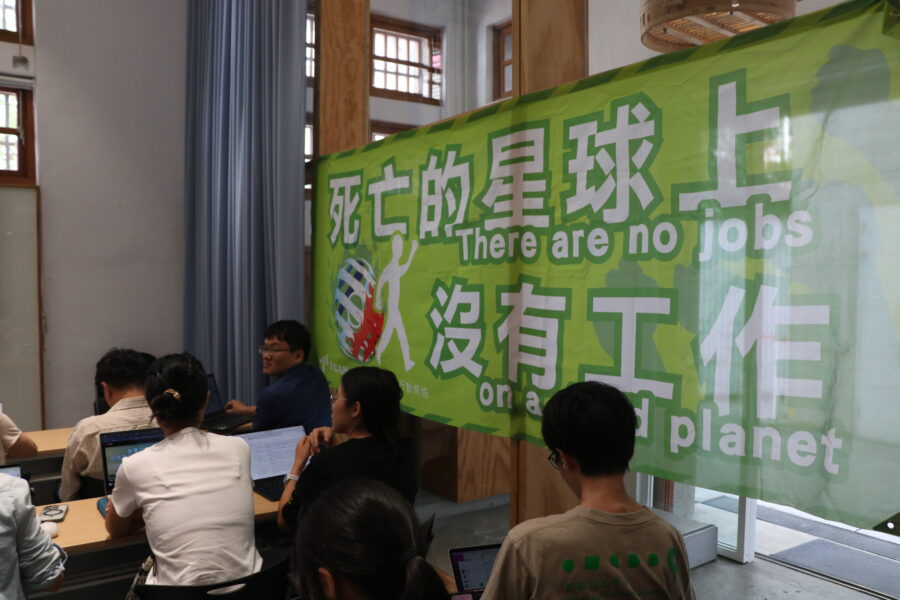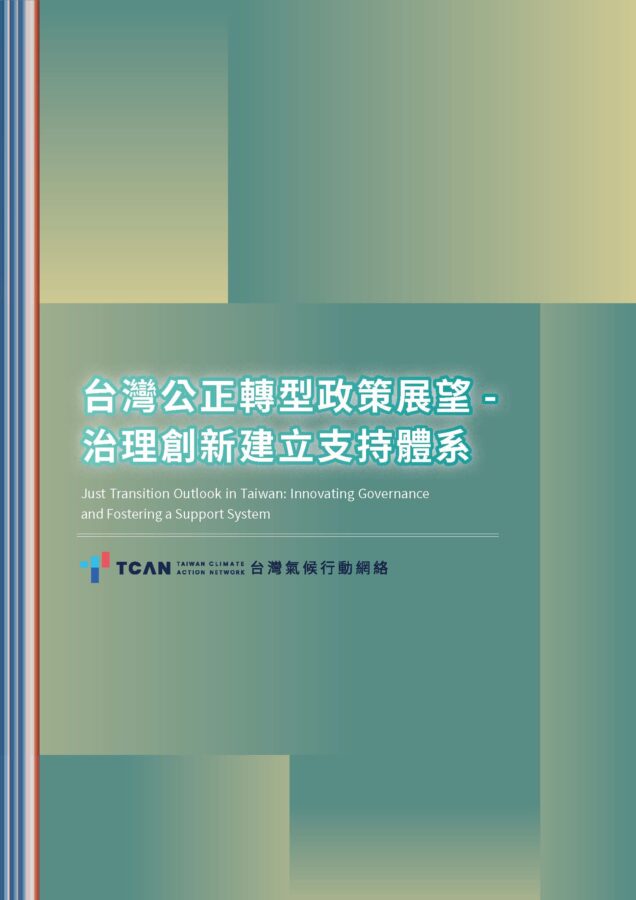On 27 August, TCAN and the Green Citizens’ Action Alliance (GCAA) co-hosted the 2024 Anti-greenwashing Forum. Focusing on the two major themes of “ESG-washing” and “Net-zero washing”, the forum gathered stakeholders from Taiwan’s regulatory regime, sustainability awarding bodies, and corporate sustainability consulting agencies to explore the roles each can respectively play in co-constructing an anti-greenwashing ecosystem.
As the need to transition to a net-zero economy becomes ever more pressing, companies have increasingly adopted the languages of ESG, SDGs, and CSR. To help consumers see through potentially deceptive green marketing tactics and to prevent the “bad money” of companies with poor records of environmental violations from driving out the good, GCAA has built a range of digital tools such as the Thaubing Footprint website, the Scan-it-Before-Buying-it app, and the ESG Detector over the past eight years. Earlier this year, TCAN and GCAA also published the 2024 Corporate Sustainability Reporting Tracker report, analysing the selection criteria of sustainability awards in Taiwan and the performance of award-winning companies in an attempt to prevent sustainability awards from becoming complicit in greenwashing efforts.
At the forum, our researcher, Lin Yi-Jiun, introduced the UN Integrity Matters report’s net-zero implementation checklist for businesses, which provides guidance on what companies need to consider through each stage of their progress towards being credibly 1.5°C-aligned. These not only include setting short-, medium-, and long-term targets towards net-zero by 2050, committing to renewable energy procurement, and restricting the use of voluntary carbon credits to beyond value-chain mitigation, but also aligning corporate lobbying and public policy advocacy with the net-zero target as well as just transition principles.
Yi-Jiun also discussed the results of the 2024 Corporate Sustainability Reporting Tracker, which incorporates these UN performance tracking indicators with Taiwan’s policies, regulations, and other relevant contextual developments in evaluating the climate performance of Taiwanese businesses along the three main criteria:
- The presence of a 2050 net-zero commitment and whether the mid-term target of 2030 is higher than the government’s 24% goal.
- Current performance and plans for energy efficiency and renewable energy.
- The disclosure of climate-related information.
Yi-Jiun pointed out that, among the 38 high-emitters that had received sustainability awards, the vast majority have publicly committed to reaching net-zero by 2050. Their annual improvements in energy intensity over the past three years have also been above 2%, which is the average for the industrial sector. Most have also disclosed somewhat complete climate-related data.
Yet, there are still significant shortcomings among these sustainability awards recipients:
- More than 1/3 of these recipients have a lower 2030 target than the national target;
- Half of the recipients in the semiconductor industry have only set relative carbon reduction targets rather than absolute ones;
- More than half of the recipients have either not set mid- and long-term efficiency targets, or their targets fail to surpass the legally required annual energy saving rate of 1%;
- Over half of the recipients have not used (including RECs) or installed enough renewable energy;
- The steel, petrochemical, and cement industries, in general, have yet to communicate their key reduction strategies and are lacking in setting the expected reduction contributions from these strategies, key milestones, and implementation timelines.
Given how even awarded businesses still have such glaring gaps to fill, civil society organisations remain concerned about the climate performances of the unawarded and non-participating firms. Yi-Jiun concluded that by merely declaring net-zero targets without clear decarbonisation strategies and transition plans, businesses risk reputational damages from falling under the suspicion of greenwashing. There have already been nearly 80 climate litigations worldwide regarding greenwashing and net-zero washing – Taiwanese clients, investors, and environmental groups may also follow suit in the future. It is, therefore, imperative for all stakeholders alike to come together and build an anti-greenwashing ecosystem. Not only do businesses need to comprehensively disclose climate-related information and propose clear climate transition plans, but the government should also formulate and standardise anti-greenwashing and sustainability disclosure guidelines. Rating and awarding bodies should follow international anti-greenwashing trends and continue to strengthen the transparency and rigour of their sustainability awards to maintain their credibility.
You may access the live recording and slide decks from the forum at the links below:



